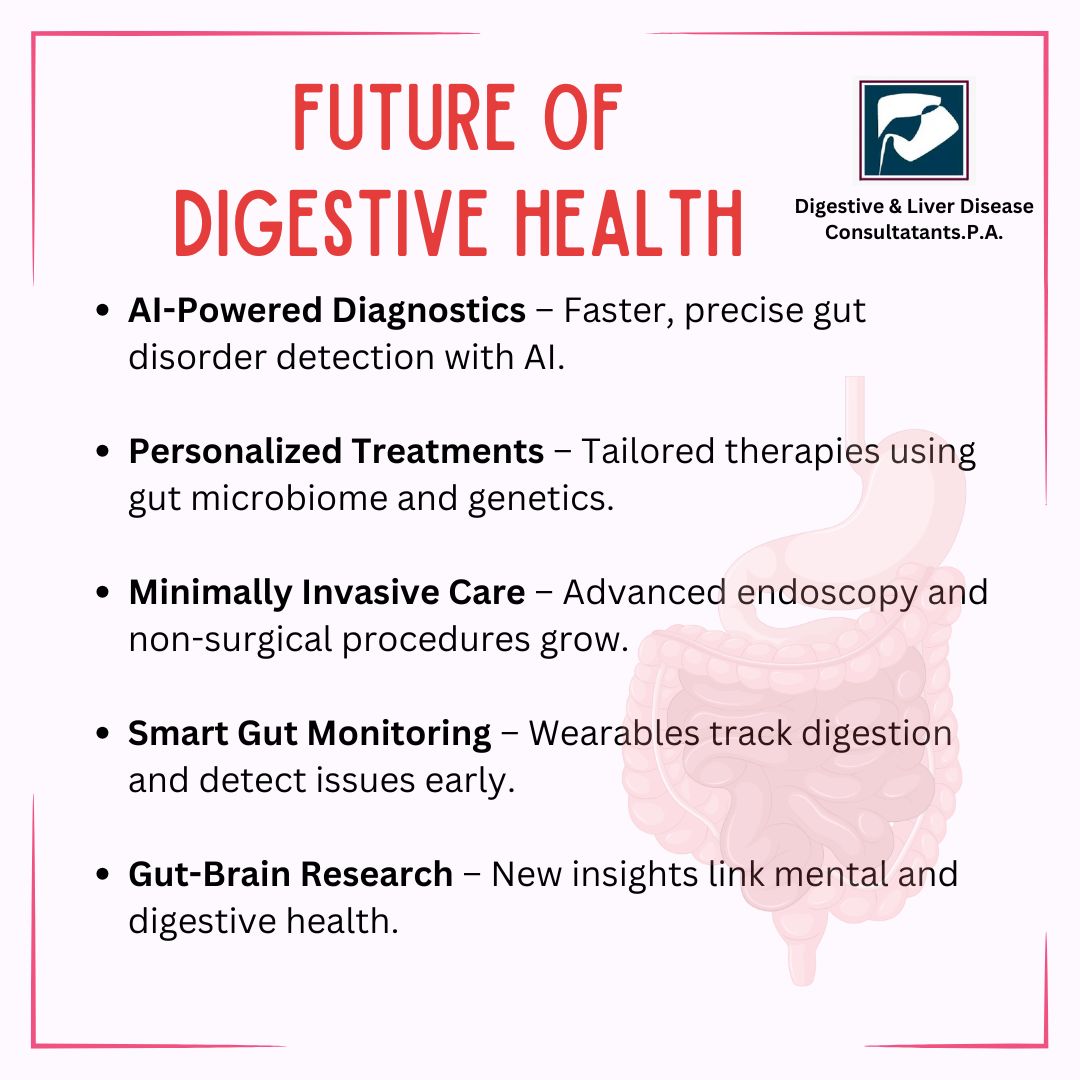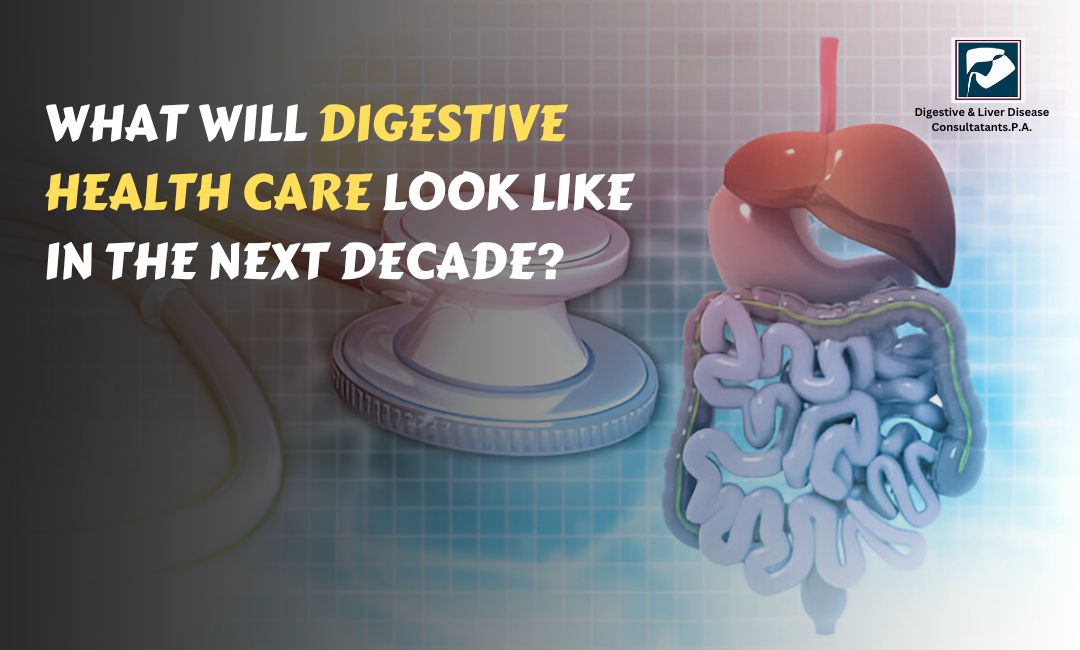As we look toward the future, digestive health care is poised for dramatic changes. With technological advancements, an increased focus on personalized medicine, and growing awareness of the importance of gut health, the next decade promises exciting possibilities. In this blog, we will explore the key trends that will shape the future of digestive health care and how you can benefit from these advancements.
The Rise of Personalized Medicine
One of the most significant shifts in health care over the next decade will be the rise of personalized medicine. Rather than relying on a one-size-fits-all approach, treatments for digestive issues will become more individualized, based on genetic and lifestyle factors. This means doctors will be able to customize treatment plans that are tailored to each patient's unique needs.
Genetic testing will become more accessible, enabling medical professionals to identify specific risk factors for digestive diseases such as Crohn's disease, celiac disease, and even colorectal cancer. By understanding these genetic predispositions, doctors can offer early interventions and preventive measures, reducing the impact of these conditions on patients' lives.

Advancements in Diagnostics
Diagnostic tools for digestive health will continue to evolve, making it easier for doctors to identify problems earlier and with greater precision. In the coming years, we can expect to see more non-invasive testing options, such as advanced imaging techniques and blood tests, to detect issues like gut microbiota imbalances, inflammatory bowel disease (IBD), and even liver dysfunction.
Additionally, artificial intelligence (AI) is expected to play a major role in the diagnostics of digestive conditions. AI systems can analyze vast amounts of data and identify patterns that may go unnoticed by human doctors. This could lead to faster, more accurate diagnoses, and ultimately, better patient outcomes.
The Role of Gut Microbiota
The gut microbiota – the community of microorganisms that live in our intestines – will continue to be a hot topic in digestive health research. Scientists are discovering more about how the balance of good and bad bacteria in the gut can impact overall health, including the development of conditions like obesity, diabetes, and even mental health disorders.
In the future, treatments aimed at restoring a healthy balance of gut bacteria will become more common. Probiotics, prebiotics, and even fecal microbiota transplants (FMT) could be used to treat a wide range of digestive issues. As research into the gut microbiome progresses, we may see even more innovative therapies aimed at optimizing gut health for overall well-being.
Minimally Invasive Surgeries
Surgical procedures for digestive conditions are likely to become less invasive in the future. The rise of robotic-assisted surgery and minimally invasive techniques means that patients will experience less pain, shorter recovery times, and a lower risk of complications.
For example, treatments for conditions like gallbladder disease, colorectal cancer, and even obesity may increasingly be performed using laparoscopy or robotic surgery. These procedures involve smaller incisions, reduced trauma to the body, and faster healing, which ultimately translates to better patient outcomes.
Telemedicine and Remote Monitoring
Telemedicine has already begun to revolutionize how health care is delivered, and the digestive health care sector is no exception. Over the next decade, virtual consultations will become more commonplace, allowing patients to access digestive health specialists from the comfort of their own homes. This is especially important for patients in rural areas or those with mobility issues, who may otherwise struggle to see a specialist in person.
Along with telemedicine, remote monitoring tools will become more advanced. Devices that can track gut health and liver function in real-time will provide doctors with continuous data, allowing them to adjust treatment plans as needed. This will lead to more proactive care, as doctors can catch potential issues before they become major problems.
Holistic and Preventive Approaches
The future of digestive health care will not just focus on treating conditions but also on preventing them. A holistic approach that emphasizes diet, exercise, and stress management will become a key part of digestive health care. Doctors will increasingly focus on educating patients about the importance of lifestyle factors and how they impact gut health.
Nutritional counseling and mindfulness practices, such as yoga or meditation, may become part of standard care for digestive disorders. We are likely to see more personalized dietary plans designed to optimize gut health, as research shows that what we eat has a profound effect on our digestive system and overall health.
Innovations in Liver Disease Treatment
Liver diseases, including fatty liver disease and cirrhosis, are on the rise due to factors like obesity, excessive alcohol consumption, and viral infections. In the next decade, we can expect new treatments that target liver disease at its core. Advances in gene therapy and targeted drugs will allow for more effective treatments, potentially reversing liver damage before it becomes irreversible.
Liver transplantation will also continue to improve, with advances in organ preservation techniques and the development of artificial livers offering hope to patients with end-stage liver disease.
Digestive & Liver Disease Consultants, P.A.: A Leader in Advancing Digestive Health
At Digestive & Liver Disease Consultants, P.A., we are committed to providing the highest quality of care to our patients. Our team of expert gastroenterologists and hepatologists specializes in diagnosing and treating a wide range of digestive and liver disorders. We utilize the latest advancements in medical technology, including cutting-edge diagnostic tools and treatment options, to ensure that our patients receive the most effective care possible.
We understand that digestive health plays a crucial role in your overall well-being, and we are dedicated to helping you achieve a healthier life. Whether you're dealing with chronic digestive conditions or seeking preventive care, our compassionate team is here to guide you every step of the way.
Conclusion: A Brighter Future for Digestive Health
The future of digestive health care is incredibly promising, with advancements in personalized medicine, diagnostics, treatments, and preventive care on the horizon. As technology continues to evolve, digestive health care will become more accessible, effective, and tailored to individual needs.






